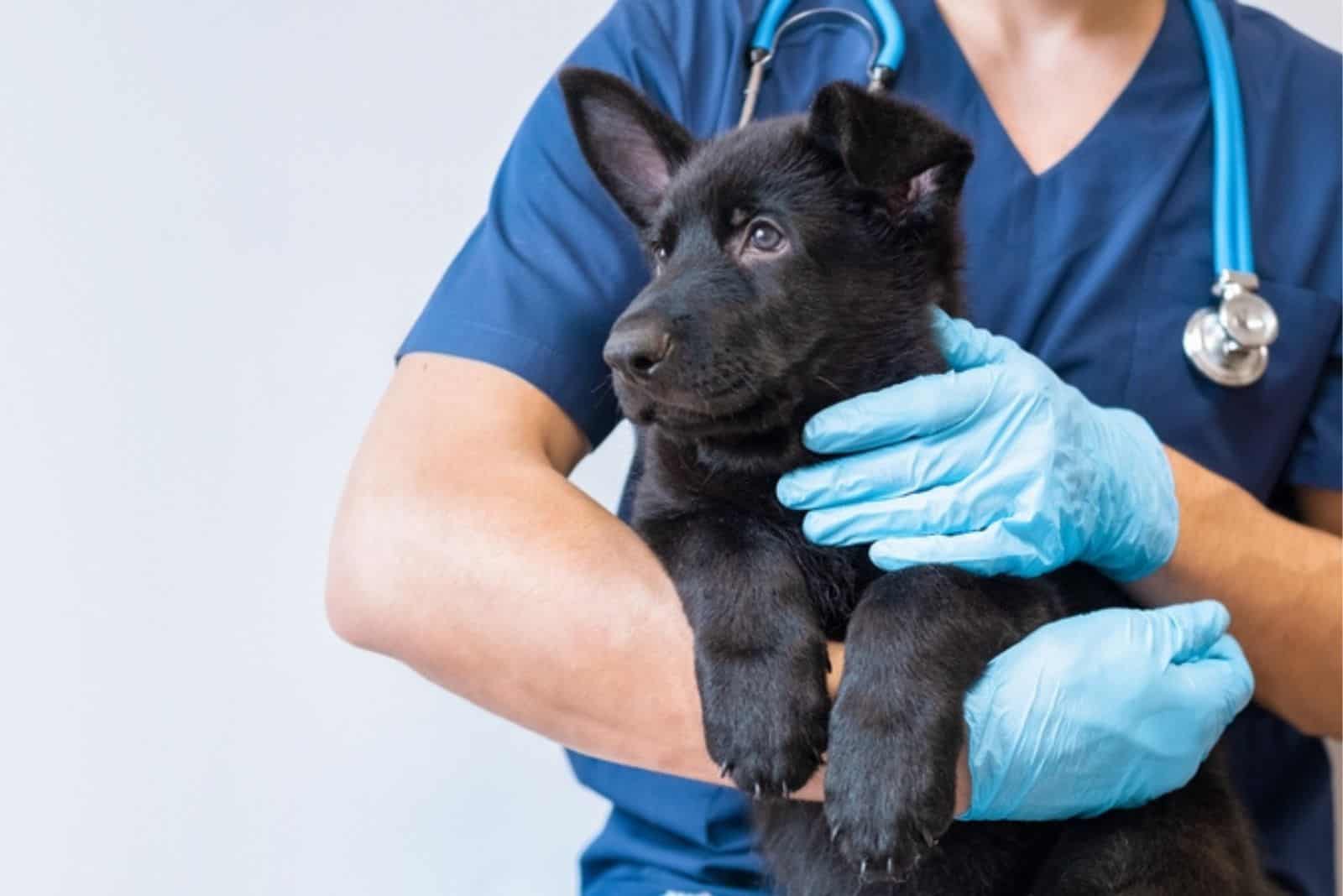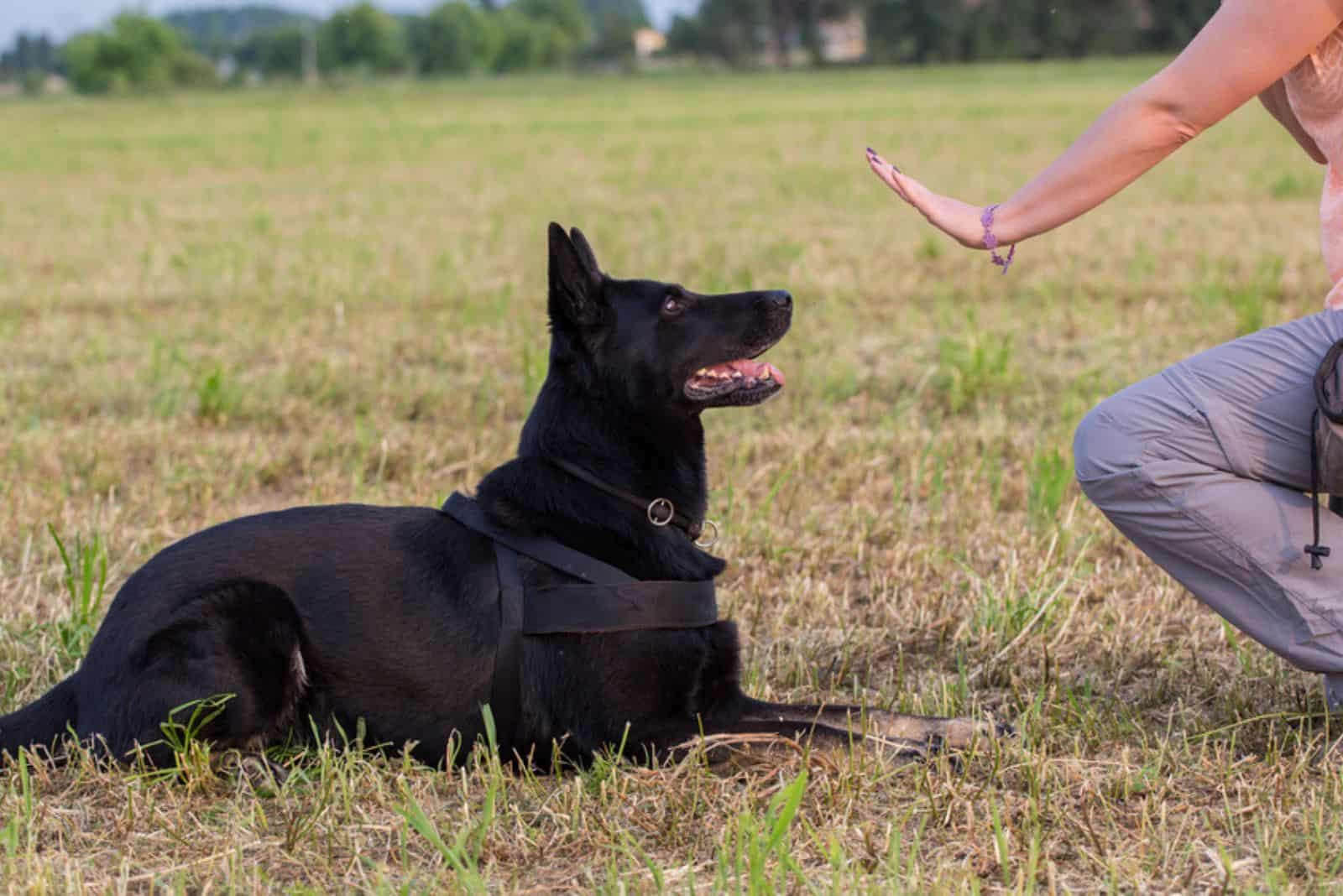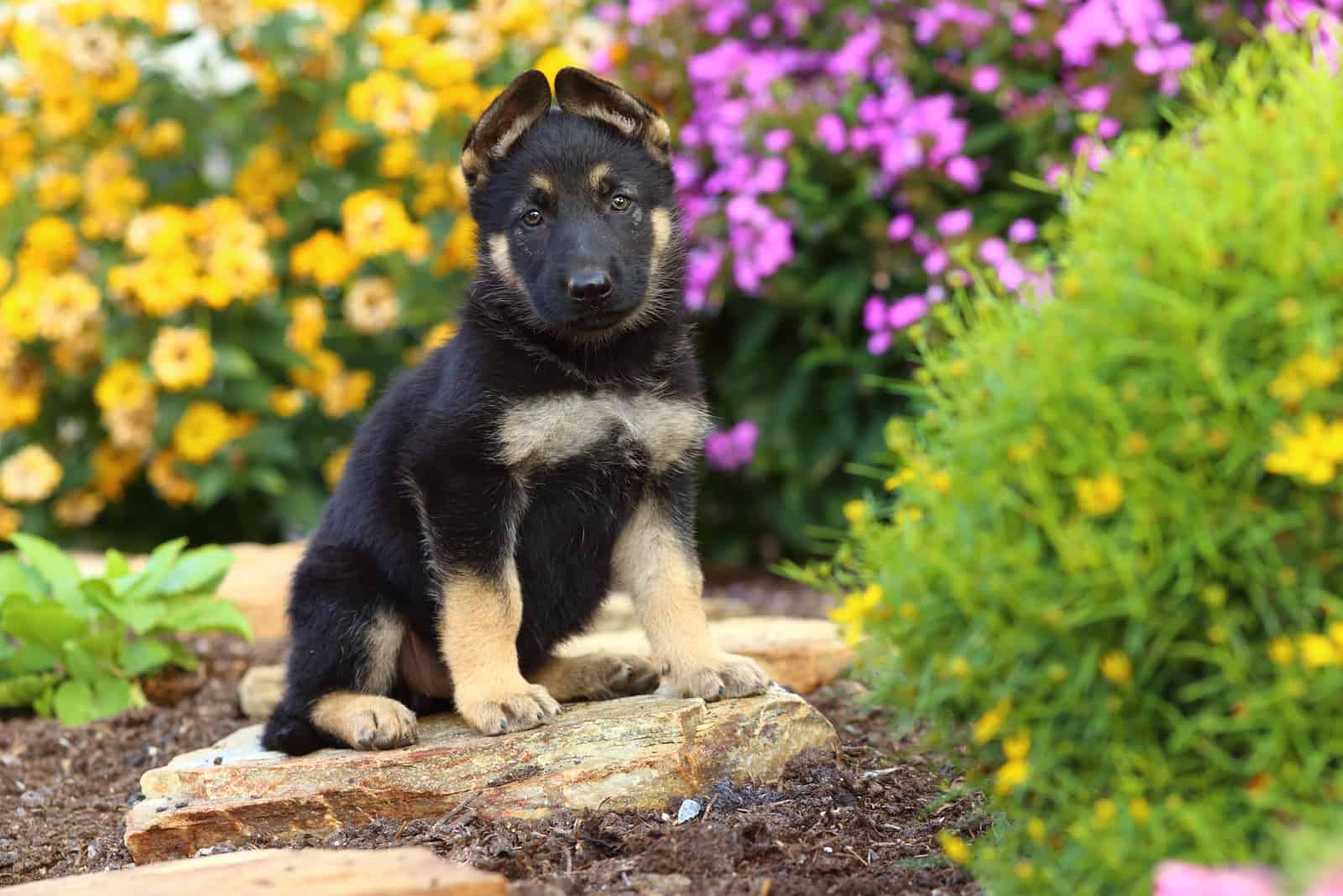Having a German Shepherd in your home is a wonderful, lifetime experience that brings a lot of joy and happiness. But, what about raising German Shepherd puppies?
The puppyhood stage of any dog is the most sensitive period of its life. During this period of time, puppies learn, adapt, and get used to a daily routine.
Neglecting their needs during the puppyhood stage can be extremely harmful in the long run, which is why you should do your best to make a decent pet out of your GSD right from the start.
In the following part of this article, find out what the most integral segments of raising these beautiful German pooches are. Let’s begin!
Raising German Shepherd Puppies

The early puppyhood stage of any dog is a quite sensitive period of life. During this time, puppies first open their eyes, make their first steps, and make their first contact with the world.
Generally, all GSD puppies need to be kept next to their mother for the first eight weeks of life. This way, they get the best source of food and heat, as well as enough strength to say goodbye when needed.
Most of the time, it is the job of the breeder to prepare them for their new owner, which is why you don’t have much work to do at this stage.
By the time you purchase them, they will already be way ahead of their first teething symptoms, crawling stage, and sucking their mom’s milk.
Are you thinking about getting a GSD puppy for yourself? Good! Here are the things you should know prior to doing so.
1. Focus On The Quality Of The Breeder
One of the most crucial segments prior to raising German Shepherd puppies is making sure you get them from a reputable breeder. That being said, you should always do a little research before you decide to do so.
Purchasing a GSD puppy from a reliable breeder will save you lots of headaches and problems.
In comparison to shady puppy mills and backyard breeders, a certified breeder will make sure you get an AKC-recognized, DNA-tested, and health-examined puppy of impeccable quality.
On the other hand, puppies are most likely to come with all needed vet documentation, its health warranty, its first pack of food for better adaptation, a microchip, and dog toys.
2. Timely Spaying Or Neutering

The thing that ranks high on the “raising German Shepherd puppies” list is spaying or neutering. Even though this part of parenting GSD puppies comes at the fourth to sixth month, it is an unavoidable thing to do.
Spaying or neutering a GSD puppy will prevent undesirable behavioral outbursts from happening, and boost your dog’s health in general.
It is much better to do this during the first year of GSD ownership rather than later. Spaying or neutering an adult dog is a much more complicated procedure, as it requires more recovery time.
3. Potty Training
Did you know that GSDs are one of the easiest dog breeds to potty train? That’s right! Considering their exquisite intelligence and natural eagerness to please – training your puppy to go potty won’t be the most complicated thing to do.
However, this is an unavoidable part of parenting a puppy, especially if you’re planning to keep your GSD inside a house.
Potty training is generally better absorbed by young puppies than by adult dogs. That’s why you should start with this sort of training right after you pick your brand-new GSD up from the breeder.
For starters, take your dog out first thing in the morning and last thing in the evening, as well as after a meal or exercise.
Choose a peeing/pooping spot outside, and stick to it. Eventually, your GSD will adopt this pattern as an unavoidable part of its routine. Only now – you will keep the potty indoors.
4. Socialization And Obedience

Obedience and socialization training are a must if you’re planning to make a decent pet out of your German Shepherd.
Both of these trainings take place during the early puppyhood stage, right after the adaptation process. Basic obedience is generally taught by using positive reinforcement, as GSDs are known to respond excellently to these training methods.
Pet, praise, and reward. At the same time, stand the ground of a leader and don’t budge.
On the other hand, socializing your dog should go gradually, step by step. Don’t immediately push your puppy towards large groups of people or other dogs.
Quite the opposite – give it enough time to get to know the new environment first. Then, introduce your dog to the rest of the family. Only after you make sure your puppy is comfortable enough with all family members – slowly start introducing it to friends and other people.
5. Proper Dieting
Designing a proper feeding chart for your GSD is very important. Despite their impeccable athleticism and high energy, these dogs are prone to obesity and other medical conditions, such as bloat and diabetes.
That being said, you should start taking care of your GSD’s diet from day one.
These pooches need protein-rich food that will help them develop and maintain their muscular body physique. On the other hand, you should avoid giving them junk food or too much of any food.
Things Not To Do

Skipping Training
Even though they are, at times, labeled as an aggressive dog breed, GSDs will never attack, bite, or bark without a reason. One of the most common reasons why these dogs become so violent is neglecting their training needs.
That said, you should never skip their exercise, nor their mental stimulation.
Bear in mind that GSDs require at least an hour of high-intensity exercise during the day. You can walk them or train them at home, but they need to burn off their energy.
Giving Your Puppy Table Scraps
Aside from poor-quality dog food brands, the worst thing that you can do for your GSD in terms of dieting is giving him table scraps and junk food.
This way, you’re creating the possibility of your puppy developing bloat, diabetes, obesity, and some major health conditions, such as heart disease.
Even though they look adorable while swallowing their well-deserved treats, they should have a boundary!
Encouraging Biting And Aggression
Some might say that GSDs are naturally aggressive, but this is generally not the case. Quite the opposite – these pooches are owner-oriented, eager to please, and usually well-behaved.
One thing that makes them aggressive, though, is improper parenting and violence-encouragement. You should never encourage them to bite, mouth, or bark, despite how cute that might look during the puppyhood stage.
This way, you are creating a behavioral pattern for the future, which will be extremely hard to change.
Leaving Your Puppy Alone
Even though they are not as dependent as some other dog breeds, GSDs can be pretty clingy dogs, too. That being said, you should never leave them alone for long periods of time.
GSDs that are neglected for the most part of the day can develop severe separation anxiety. Consequently, anxious puppies will be much harder to train and take care of, as they are insecure, afraid, self-destructive, and even aggressive.
Final Thoughts
These five segments of raising German Shepherd puppies will most definitely help you develop a beautiful, two-sided relationship with your brand-new companion.
GSDs are naturally loyal, devoted, and affectionate dogs that love spending time with their owner. In order to make their puppyhood stage even better – start implementing these things today!
Read more:
